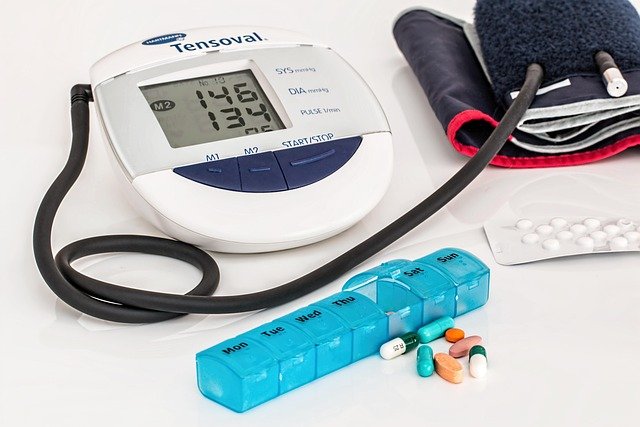Effective Hypertension Treatment: Managing Blood Pressure and Heart Health
High blood pressure, or hypertension, affects millions worldwide and is a leading factor in heart disease and stroke. Effective hypertension treatment combines accurate measurement, lifestyle changes, timely healthcare intervention, and often medication. Understanding how these pieces fit together helps people and providers reduce complications, improve daily wellbeing, and tailor a long-term plan that fits each person’s needs and circumstances. This article explains common causes, measurement methods, treatment options, and how to protect the heart over time.

This article is for informational purposes only and should not be considered medical advice. Please consult a qualified healthcare professional for personalized guidance and treatment.
What causes hypertension and who is at risk?
Hypertension arises from a mix of genetic, environmental, and behavioral factors. Age, family history, obesity, sedentary lifestyle, high salt intake, heavy alcohol use, and certain chronic conditions such as diabetes or kidney disease raise risk. Some medications and sleep apnea can also contribute. Identifying risk factors through regular checkups helps healthcare teams prioritize prevention and treatment. Risk assessment may include lab tests, lifestyle review, and discussion of family history to determine whether lifestyle changes or early medication are appropriate.
How is blood pressure measured and classified?
Accurate blood pressure measurement is essential for diagnosis and management. Clinicians use office readings, but home monitoring and 24-hour ambulatory blood pressure monitoring can reveal patterns like white-coat hypertension or masked hypertension. Readings are given as systolic over diastolic (e.g., 130/80 mm Hg). Current guidelines define elevated and stage levels that guide treatment decisions. Consistent technique—sitting quietly, using a validated cuff size, and multiple measurements—improves reliability. Regular monitoring helps assess response to medication and lifestyle changes and informs treatment adjustments.
What lifestyle steps improve healthcare outcomes for hypertension?
Lifestyle interventions are foundational for preventing and treating hypertension and complement clinical care. Proven approaches include adopting a heart-healthy diet rich in vegetables, fruits, whole grains, and lean protein while reducing salt and processed foods; maintaining a healthy weight; engaging in regular aerobic and strength-training exercise; limiting alcohol; and quitting smoking. Stress management and adequate sleep also support blood pressure control. Working with local services—nutritionists, exercise programs, or community health centers—can make these changes more sustainable and tailored to personal circumstances.
When is medication recommended and what types exist?
Medication is recommended when lifestyle changes are insufficient to reach target blood pressure or when baseline risk is high. Common antihypertensive classes include thiazide diuretics, ACE inhibitors, angiotensin receptor blockers (ARBs), calcium channel blockers, and beta-blockers. Choice depends on factors such as age, comorbidities (diabetes, kidney disease), pregnancy potential, and tolerance. Many patients require two medications in combination for optimal control. Regular follow-up to monitor effectiveness and side effects is essential; dose adjustment or switching classes may be necessary to balance efficacy with safety.
How does hypertension affect the heart long-term?
Uncontrolled hypertension places chronic strain on the heart, causing structural and functional changes that increase risk for coronary artery disease, heart attack, heart failure, and arrhythmias. Elevated blood pressure can thicken the heart muscle (left ventricular hypertrophy), reduce pumping efficiency, and accelerate atherosclerosis. Controlling blood pressure reduces these risks substantially and also lowers stroke and kidney disease risk. Preventive care focuses on sustained blood pressure control, lipid management, diabetes care when present, and lifestyle measures that protect cardiovascular health.
Conclusion
Treating hypertension is a long-term, individualized process combining accurate diagnosis, lifestyle interventions, appropriate healthcare follow-through, and, when needed, medication tailored to the person’s risk profile. Regular monitoring—both in clinical settings and at home—helps guide adjustments and ensures treatment remains effective. By addressing modifiable risk factors and partnering with healthcare providers and community resources, people with hypertension can significantly lower their risk of heart-related complications and maintain better overall health.






